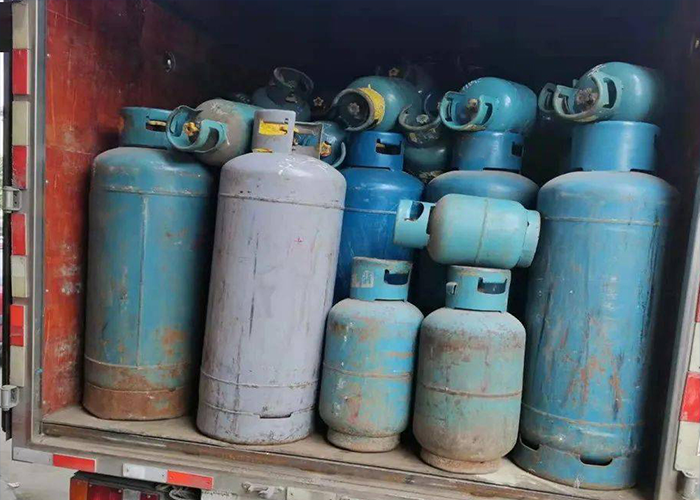It is very unsafe to store LPG cylinders centrally in the basement, which may lead to serious fire safety accidents, there are mainly these safety hazards as follows.
1. Ventilation conditions in the basement are very poor, once a leak occurs, the vaporized gas cannot be dispersed and it is particularly easy to form an explosive mixture.
2. Once an explosion occurs in a confined underground space, the shockwave and high temperature generated can easily cause serious injuries and deaths.
3. It is inconvenient to escape from the basement, in case of leakage or fire, it is impossible to escape quickly.
4. underground power distribution facilities are not as good as above ground, there is a risk of electrical failure caused by accidents.
5. Liquefied petroleum gas is very dense, and once it leaks, it will gather at the bottom of the basement and spread very slowly.
6. Underground environment temperature is humid, which will aggravate the corrosion of the inner wall of the cylinder.
7. It is too close to residential area and electrical facilities, which will expand the hazard.
8. Inconvenient inspection and daily management, and difficult to implement safety measures.
Therefore, it is strictly prohibited to store LPG cylinders in the basement and living area, which will lead to a huge risk of safety accidents.
The storage of LPG cylinders requires attention to the following issues.
1. Avoid direct sunlight and do not store in a hot and humid environment.
2. Choose a well-ventilated place for storage, and prohibit storage in the basement or living area.
3. Fix the cylinder to avoid tipping. It can be fixed by chain or bracket.
4. Pay attention to the spacing, there should be enough spacing between cylinders of different specifications. Avoid too dense accumulation.
5. Store in different sections, pay attention to classification and labeling, and prohibit mixing with poisonous gases.
6. Cylinders with gases should be placed vertically to prevent liquefied gases from entering directly into the conduit.
7. Avoid direct contact with the ground. They can be protected by wooden pallets and other supports.
8. Warning signs should be set up in a prominent position to prohibit open fire and smoking.
9. Regular inspection and timely cleaning of overdue or obsolete cylinders.
10. Equipped with necessary fire-fighting facilities and emergency equipment for leakage. 1
11. Designated personnel management, the establishment of storage registration system, and do a good job of daily safety inspections.
Attention to these factors, you can reduce the potential safety accidents of liquefied petroleum gas cylinders.

In order to prevent the leakage of liquefied petroleum gas, the following measures can be taken.
1. Select quality cylinders and valves to ensure their safety and reliability.
2. check the joints frequently, keep the joints airtight, and replace them immediately if they are found to be loose. 3. check the hoses regularly.
3. check the hoses regularly, and replace them once they are damaged.
4. Handle with care to prevent the cylinder from being hit or damaged.
5. Check whether the valve has been tightened after use, and remember not to plug and unplug the hose at will.
6. Store away from fire and heat sources, and avoid direct sunlight.
7. Set up good ventilation facilities, once the leakage can be quickly diffused.
8. Use the combustible gas alarm, set the alarm concentration, automatic alarm when leakage.
9. formulate emergency plan for liquefied gas leakage, and practice regularly.
10. Strengthen the training of operators, and develop the habit of standardized operation.
11. Regularly check the possible leakage points, and deal with the hidden dangers in time.
12. Reasonable use, to avoid excessive accumulation of liquefied petroleum gas.
Doing these preventive work can greatly reduce the occurrence of liquefied petroleum gas leakage accidents.